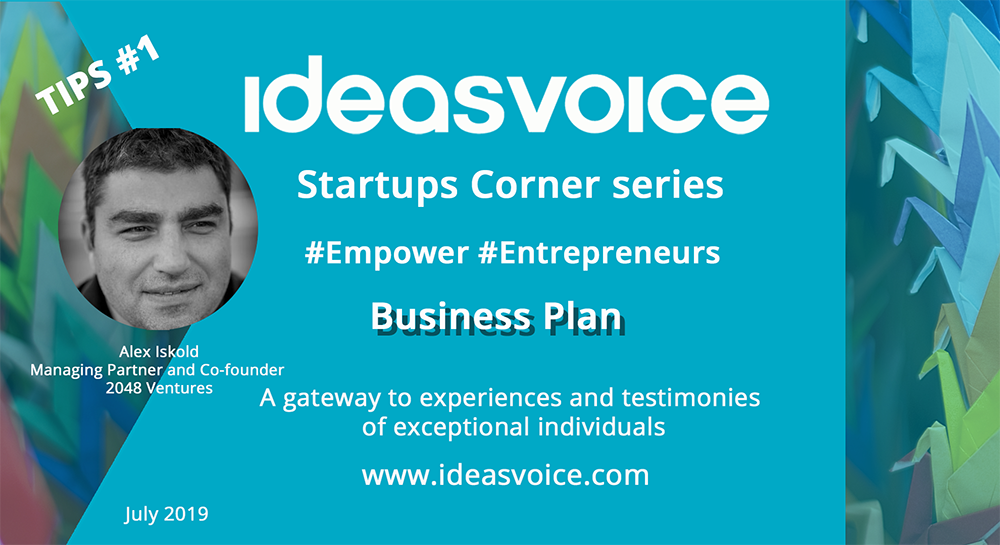Tips for your business plan by Alex Iskol, 2048 Ventures
August 26, 2019
We discuss business plans when reaching VCs and convincing VCs to invest in your company with Alex Iskold, Managing Partner and Co-founder of 2048 Ventures
“What investors are really looking for is founder-market fit, understanding why you’re qualified to build the business, and demonstrating fluency in the market or business”, Alex Iskold
In this video, Alex Iskold discusses with us the importance of a business plan, particularly when trying to convince investors to put money into your company.
It can be difficult to know what exactly to say or to include in the plan. But his advice will hopefully give some guidance to those looking to begin funding their vision.
The importance of a business plan to investors
He explains how founders shouldn’t become caught up in the process of trying to develop a formal, traditional business plan.
This isn’t to suggest that business plans are unimportant but rather that people looking for help from investors should be able to capture the important aspects of a business plan and articulate the information concisely.
Investors also want to see that the founding team has both the dynamic and capabilities to flourish in their market.
Finding the right fit in regards to the people hired and the market that they’re entering is imperative.
This entails having relevant people on the team. It’s fantastic if the individuals brought on board are proactive and hardworking but their skills need to match needed skills for the company and the skills that will be more effective in the desired market.
If the fit is right, the team will more than likely be able to demonstrate their fluency in the business. Much of this will come to light in the business plan as the plan serves as an example of both the approach to strategic thinking and the collaborative efforts of the team.
Expectations for how entrepreneurs will use funds
The business plan should explain the big picture for how the investors’ money will be used.
An effective business plan will coherently and concisely explain the use of funds in a persuasive manner.
No one is expecting the business to anticipate management of money down to the dollar.
Early stage companies will primarily be using money to hire necessary people. If the company is dealing with a physical product, a significant amount of funding will go to manufacturing.
Furthermore, investors will look at how much you pay yourself. The amount you designate for your own salary gives investors an idea of how seriously you take both the company and the money. A committed individual will prioritize the growth of the company before their own financial comfort.
The business plan should ultimately serve to explain the big picture idea for fund management.
That is why investors care a great deal about the presentation of the plan. Founders should therefore look at it as an opportunity to show potential investors that they understand the business well.
Founders demonstrate this by logically describing money allocation, who will be hired to help manage the money, and the expected outcome after this planning.
That is why it’s crucial to spend the necessary time writing out the business plan. It can be the determining factor in whether or not a company receives much needed funding.
About Alex Iskold
Managing Partner and Co-founder of 2048 Ventures
Alex Iskold is a co-founder and Managing Partner at 2048 Ventures. Prior to 2048, Alex spent 5 years at Techstars as the Managing Director of its NYC program, where he invested in and helped over 100 startups. Alex was previously the founder and CEO of Info Lab (acquired by IBM), founder and CEO of GetGlue (backed by USV, RRE, Time Warner), Chief Architect of distributed computing startup DataSynapse, and a software engineer at Goldman Sachs, D.E. Shaw and Thinkmap.
Alex also taught an award-winning undergraduate computer science class at NYU. He holds a B.S. in Math with Honors from Lehigh University and M.S. in Computer Science from NYU. Alex writes one of the top startup blogs called Startup Hacks.


